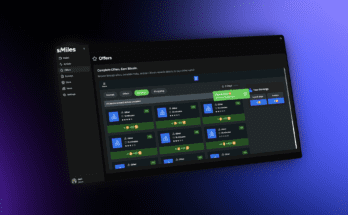In today’s digital-first economy, visibility equals opportunity. Whether you’re a small local contractor or a global investor, understanding how to leverage SEO can mean the difference between online obscurity and business growth. As we head deeper into 2025, best practices have evolved, but the goal remains the same: drive qualified traffic, improve search rankings, and convert clicks into customers.
This post explores the most effective SEO strategies today, along with examples of how businesses across industries like HVAC companies and real estate investors, are applying them for measurable results.
Why SEO Still Dominates Digital Strategy
Search Engine Optimization (SEO) continues to be the backbone of organic digital marketing. Unlike pay-per-click advertising that stops the moment the budget runs dry, SEO builds long-term momentum. It helps brands:
- Show up where users are actively searching
- Build trust through visibility
- Attract high-intent traffic
- Reduce reliance on paid campaigns over time
When done right, SEO isn’t just about traffic—it’s about the right kind of traffic: visitors who are looking to take action.
1. Build a Technically Sound Website
SEO starts with a strong foundation. If a site is slow, poorly structured, or hard to navigate, search engines (and users) won’t stick around. In 2025, technical SEO is more critical than ever.
Key technical factors include:
- Fast loading times (ideally under 3 seconds)
- Mobile-first design
- HTTPS encryption
- Proper indexing with XML sitemaps
- Clean internal linking structure
- Minimal crawl errors
- Structured data for enhanced SERP visibility
Many agencies, such as Rankwise, offer comprehensive technical SEO audits to help businesses correct foundational issues and unlock their website’s potential.
2. Know What Your Audience is Searching
Keyword research remains one of the most valuable components of SEO. Successful businesses don’t guess—they use data to understand the phrases their target audience is actually typing into Google.
By using tools like Ahrefs or Google Search Console, businesses can identify:
- Long-tail keywords with commercial intent
- Local phrases that drive in-market leads
- Content gaps their competitors aren’t filling
For example, an HVAC business that targets broad terms like “air conditioning” may struggle to compete. But by targeting phrases like “24-hour HVAC repair in Phoenix,” they tap into a specific need with higher conversion potential. Agencies specializing in HVAC SEO often help service companies dominate local search through this approach.
3. Optimize Every Page for Search and User Experience
On-page SEO is where content, structure, and strategy intersect. Even if a business produces great content, it won’t rank well unless pages are properly optimized.
Best practices for on-page SEO include:
- Clear, keyword-rich title tags
- Compelling meta descriptions under 160 characters
- Use of H1 and H2 tags to organize content
- Image alt text for accessibility and search context
- Descriptive, short URL slugs (e.g., /hvac-services-los-angeles/)
- Internal links to relevant pages on the site
These tactics help search engines understand page context while also enhancing the user’s browsing experience.
4. Prioritize Value-Driven Content
In 2025, the best-ranking content is helpful, focused, and trustworthy. Google’s “Helpful Content” update rewards sites that deliver real value, especially when content is written by experts or shows clear first-hand experience.
Effective SEO content should:
- Solve problems or answer common questions
- Use bullet points, short paragraphs, and visual elements
- Avoid keyword stuffing or vague, generic info
- Include calls to action (CTAs) that guide users
Consider the real estate investment niche. A U.S.-based investor looking to buy overseas property wants information about ROI, legal processes, and location trends. This is why some companies create pages like this one dedicated to Dubai real estate investment, providing a rich blend of facts, stats, and action steps to drive serious interest.
5. Focus on E-E-A-T: Experience, Expertise, Authoritativeness, and Trust
Google wants to rank trustworthy content. That’s where E-E-A-T comes in—an important framework for building SEO credibility in any industry.
To improve E-E-A-T:
- Include detailed author bios with credentials
- Cite reputable sources
- Show reviews or testimonials
- Link to expert content within the site and beyond
- Maintain site security (HTTPS) and transparency (about pages, policies, etc.)
For industries like HVAC or real estate—where safety, investment, or major decision-making is involved—E-E-A-T is especially critical.
6. Earn Quality Backlinks (Not Just Quantity)
Backlinks signal authority. When respected websites link to yours, it tells search engines your content is valuable. But not all links are created equal.
Valuable link sources include:
- Niche industry blogs
- Local business associations
- Relevant online directories
- Journalistic mentions or PR coverage
- Guest contributions on reputable platforms
Avoid spammy link farms or irrelevant backlinks. Many agencies, including Rankwise SEO agency, specialize in ethical, long-term link-building strategies that help businesses increase domain authority the right way.
7. Monitor, Measure, and Adjust Often
SEO isn’t static. Google rolls out frequent updates, and user behavior shifts constantly. Businesses that track performance regularly have the upper hand.
What to monitor:
- Keyword rankings
- Bounce rates and time on page
- Organic click-through rate (CTR)
- Traffic sources
- Conversions from search
Use tools like Google Analytics, Search Console, or Looker Studio dashboards to analyze what’s working. From there, businesses can update stale content, strengthen weak pages, or pivot strategy entirely.
8. Get Serious About Local SEO
For service-based businesses—HVAC, law firms, restaurants, etc.—local SEO is a game-changer. It’s how people searching “near me” or “in [city]” find trusted providers.
Local SEO essentials:
- Google Business Profile fully optimized and verified
- Local keywords in title tags and headings
- Consistent NAP (Name, Address, Phone) across all platforms
- Reviews from happy customers
- Location-specific service pages
Rankwise’s HVAC SEO services are an example of how hyperlocal targeting can lead to more traffic, calls, and booked jobs.
9. Expand with Global or Niche-Specific SEO
On the flip side, companies targeting international audiences or niche investment groups need broader strategies. For instance, digital campaigns targeting U.S. citizens interested in overseas opportunities—like investing in Dubai property—require culturally sensitive and localized SEO efforts.
This includes:
- Localized content and keyword research
- Currency, legal, and tax information
- Trust signals tailored for international audiences
- Clean UX for mobile and global visitors
Pages like this one highlighting Dubai real estate opportunities show how SEO can connect U.S. investors with foreign markets through helpful, search-optimized content.
Final Thoughts
SEO in 2025 is about more than just ranking, it’s about building a trustworthy brand that solves problems, answers questions, and drives results. Whether you’re a local service provider or a global investor, the core principles remain the same: prioritize the user, follow search engine guidelines, and stay consistent.
Businesses that implement these best practices will not only rank higher but also build long-term digital authority in their industry. For those ready to take their strategy to the next level, working with experts like those at Rankwise can make all the difference.



